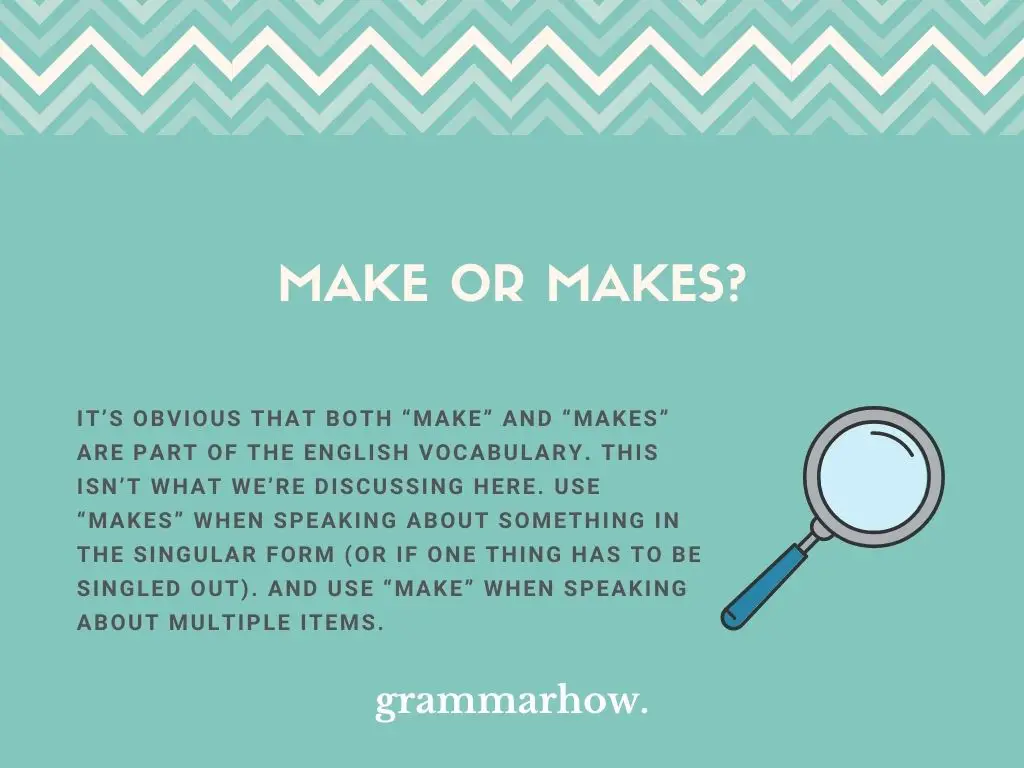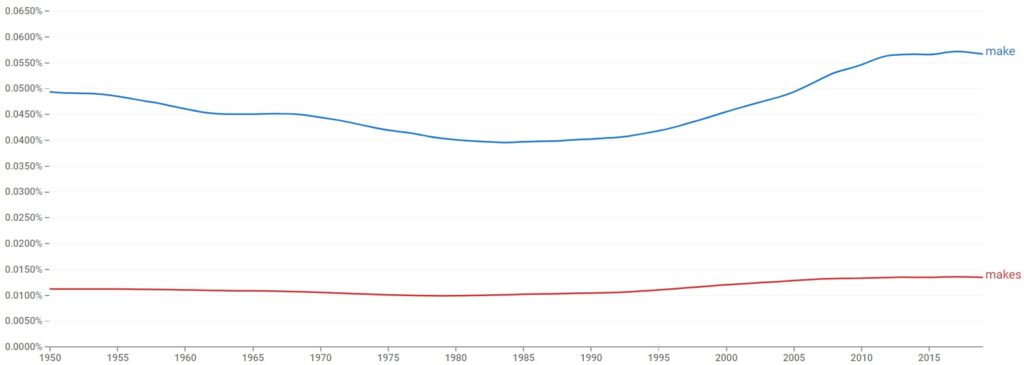In complex sentences it can be hard to identify if “Make” or “Makes” should be used. How do you select the best word choice for your speech?
Let’s take some time to look into both forms, and figure out the correct way to use them when communicating with others.
Make or Makes?
It’s obvious that both “Make” and “Makes” are part of the English vocabulary. This isn’t what we’re discussing here. Use “Makes” when speaking about something in the singular form (or if one thing has to be singled out). And use “Make” when speaking about multiple items.

Take a look at the examples below:
- Describe your experience that makes you qualified for this job.
- Describe your experience and expertise that make you qualified for this job.
- What qualifications make you qualified for this job?
- What makes you qualified for this job?
The first and second sentences are quite simple examples. In the first sentence, the interviewer asks about the candidate’s experience. It’s one aspect of their work life, and because it’s one single item, we use “Makes”.
In the second sentence, though, the interviewer asks about two things: the candidate’s experience and expertise. Consequently, two items lead the sentence to need to use “Make”.
The same principle goes for the second set of sentences. When asking about the qualifications (plural) the candidate has, the interviewer uses “Make”. When asking about the candidate himself, the question becomes “What makes you…”, in the singular form.
What to Use “Make”
“Make” should be used every time the speaker refers to more than one item or a concept that is addressed in the plural form. “Make” should also be used in the future tense, both for singular and plural, regardless of what the speaker is referring to.
Let’s look at some examples, to clarify this idea:
- What ingredients do you need to make the cake?
- All these bright colors can make someone overwhelmed.
- Talia will make a new shelf for her room.
- Jason and Nico make a good pair, I think.
- Loud noises make dogs uncomfortable.
The use of “Make” isn’t hard to grasp.
But let’s focus for a second on sentence 3, which says “Talia will make a new shelf”. Although Talia is one person making one shelf, we use the form “Make” because we’re addressing her in the future tense, using “will make”.
It means that the shelf in a future project, which isn’t yet in the works.
What to Use “Makes”
“Makes” is a word that has a stricter use. You should only use it in the present tense with the pronouns he, she and it, or nouns that require third person singular conjugations. Use “Makes” for singular in the present, and for all other cases, you should still use “Make”.
Take a look at the examples below:
- This is Percy’s favorite toy, and it makes him so happy.
- The baker makes various different types of pastries.
- Quentin makes art for a living, you should see his work.
- Waiting in line makes Lena stress out, can’t we just schedule an appointment?
- Being at parties makes me anxious, so I’d rather not go.
Simply put, all the subjects in these sentences are single individuals that are making something in the present tense. It could be their work, a hobby, a personal preference, etc.
“Makes” work in those instances, because we’re using it to refer to one subject, in the present tense.
Which Is Used the Most?
Would you be able to guess which of those words are used more often, “Make” or “Makes”? We have a graph from Google Ngram Viewer that will show us exactly which one it is.

“Make” appears with much more frequency than “Makes”. And we think this was what to expect, simply because “Make” can be used in more situations than “Makes”, which is much more specific in us
Final Thoughts
If you think about it, the choice between “Make” and “Makes” isn’t hard. When in doubt remember that “Makes” should be used in the present tense, in relation to one single item (or person). For all other situations, use “Make”, and you’ll be just fine.
